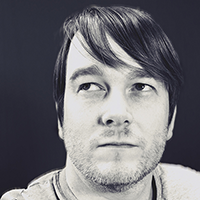Systems over goals

As I work on my Atomic Note-Taking book, I start to explore an example of how to process fleeting notes into literature notes. The book I’m using as a reference is Atomic Habits by James Clear.
In this book, he covers the three types of habits: goal-driven habits, system-driven habits and identity-driven habits.
Over the years I’ve always attempted goal-driven habits. Where you get to set a goal of achieving a specific thing (and usually by a specific time) and then do what it takes to achieve it.
But I don’t like them. And for good reason. They are subject to the Arrival Fallacy. Once you complete a goal, you lose the motivation to continue. What next? What are you doing it for?
But I even fail to reach the goal in the first place. I find that my motivation fades and when faced with the challenge of doing the work, my willpower is nowhere to be seen. This is especially true when external events disrupt my routine, such as travel, sickness or stressful events.
So much so, I genuinely don’t like setting goals because I know they are out of my hands. They are good if you like making wishes, but bad if you actually want the goal to happen.
Instead, James Clear talks about system-driven habits. These are the things you do. Sure, they can have a goal to align what the thing you do is to achieve, but they live beyond the goal. They are a habit. Which means it’s something you do frequently and preferably without friction.
Writing my book is a great example. Sure, I want to write the book and launch it. But I actually focus on the system to achieve it. That’s where I commit to writing for 30 minutes a day to keep things progressing. Not saying that’s easy, and when I do slip, all I need to focus on it reseting and getting back to the habit of 30 minutes a day.
Identity-based habits are an extension of this. Rather than saying, I write for 30 minutes a day, I can say, I’m a writer. I take on the traits that a writer takes on. It means I can look at my decisions through that lens. When faced with a decision, I can ask “does this decision align with what a writer would do?”
I’ve been experimenting with system-based habit forming for a few years now. It’s how my app Flowtelic has stayed the course to continue. It’s not been easy to say the least, but rather than look at the mountain to climb, I just look at the action I take today.
It’s doing that where the benefits compound. As the habits become more stable and easy, you get to stack them over time. You get to make the incremntal improvements. And, in time, your goals will happen.
Today’s ah-ha moment is to use goals as a way to know what’s important to you, but also think of the systems you need to put into place to do the actions needed to make the goals happen. Think longer term and when your goals complete, don’t stop your habits, continue them and build on the success they provide.
What systems do you think would help you achieve your goals? Let me know.

